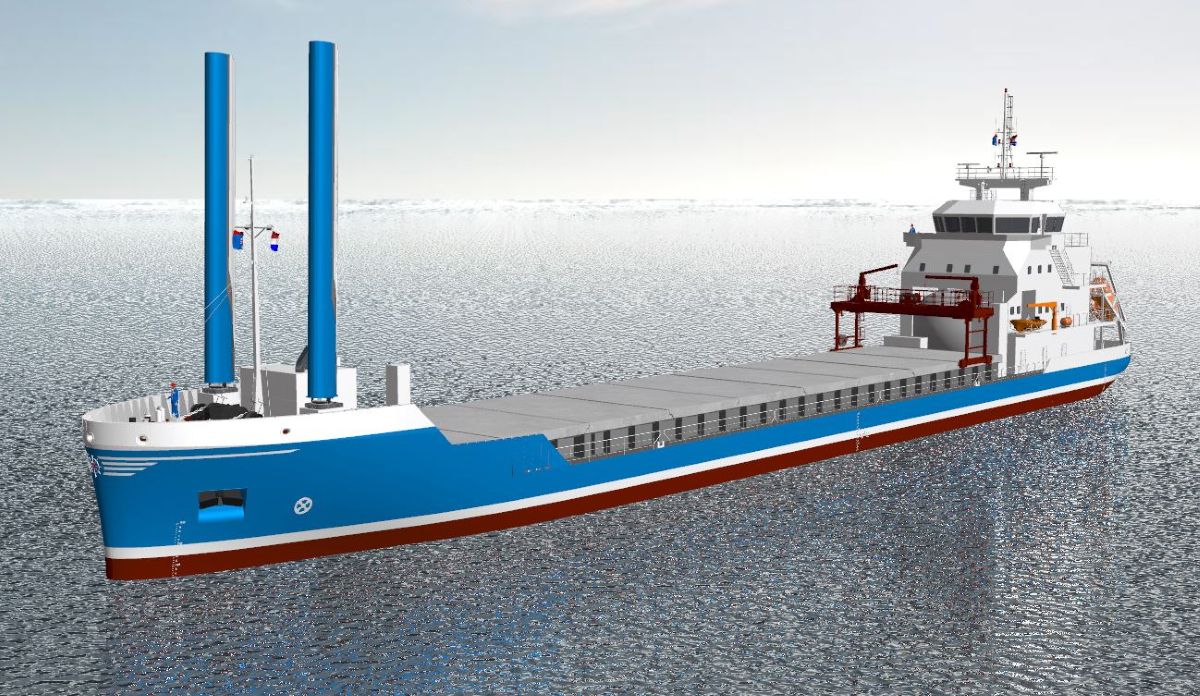NIM-led H2ESTIA Project: Developing the First Liquid Hydrogen-Powered Cargo Ship
Key Ideas
- The H2ESTIA Project aims to create the world's first zero-emission general cargo ship powered by liquid hydrogen, with support from various maritime and technology firms.
- The vessel will feature a hydrogen fuel cell system, wind-assisted propulsion, and digital twin technology for real-time monitoring and operational optimization.
- Partners in the project aim to demonstrate the technological readiness and economic viability of hydrogen-powered vessels for commercial deployment.
- The initiative also focuses on addressing challenges such as certification of hydrogen systems, risk management, and crew training to ensure safe integration of hydrogen technology in maritime operations.
A new project, led by the Dutch Innovation Company (NIM) and supported by the Dutch government, called the H2ESTIA Project, aims to develop the 'world's first' zero-emission general cargo ship powered by liquid hydrogen. This initiative is supported by a consortium of maritime and technology firms, including TNO, MARIN, and the University of Twente. The project will design, construct, and demonstrate a hydrogen-powered cargo vessel that will operate in the North Sea, with Van Dam Shipping managing the ship. The vessel will be equipped with a cryogenic hydrogen storage and bunkering system, a hydrogen fuel cell system, batteries, wind-assisted propulsion, and waste heat recovery solutions for enhanced energy efficiency. Digital twin technology will be utilized for real-time monitoring and operational optimization.
The project aims to demonstrate the readiness and viability of such vessels for commercial deployment. Challenges such as certification of hydrogen systems, risk management, and crew training are key focuses. The goal is to pave the way for safe integration of hydrogen technology into maritime operations. According to project leaders, this effort combines hydrogen technology with digital innovation to make zero-emission shipping a practical reality. The collaboration also extends to securing the supply, bunkering, and logistics necessary for the project's success. Overall, the H2ESTIA Project signifies a significant step in advancing hydrogen-powered transportation in the maritime industry.
Topics
Certification
Technology
Innovation
Energy Efficiency
Zero-emission
Collaboration
Maritime Industry
Commercial Deployment
Digital Twin
Latest News
